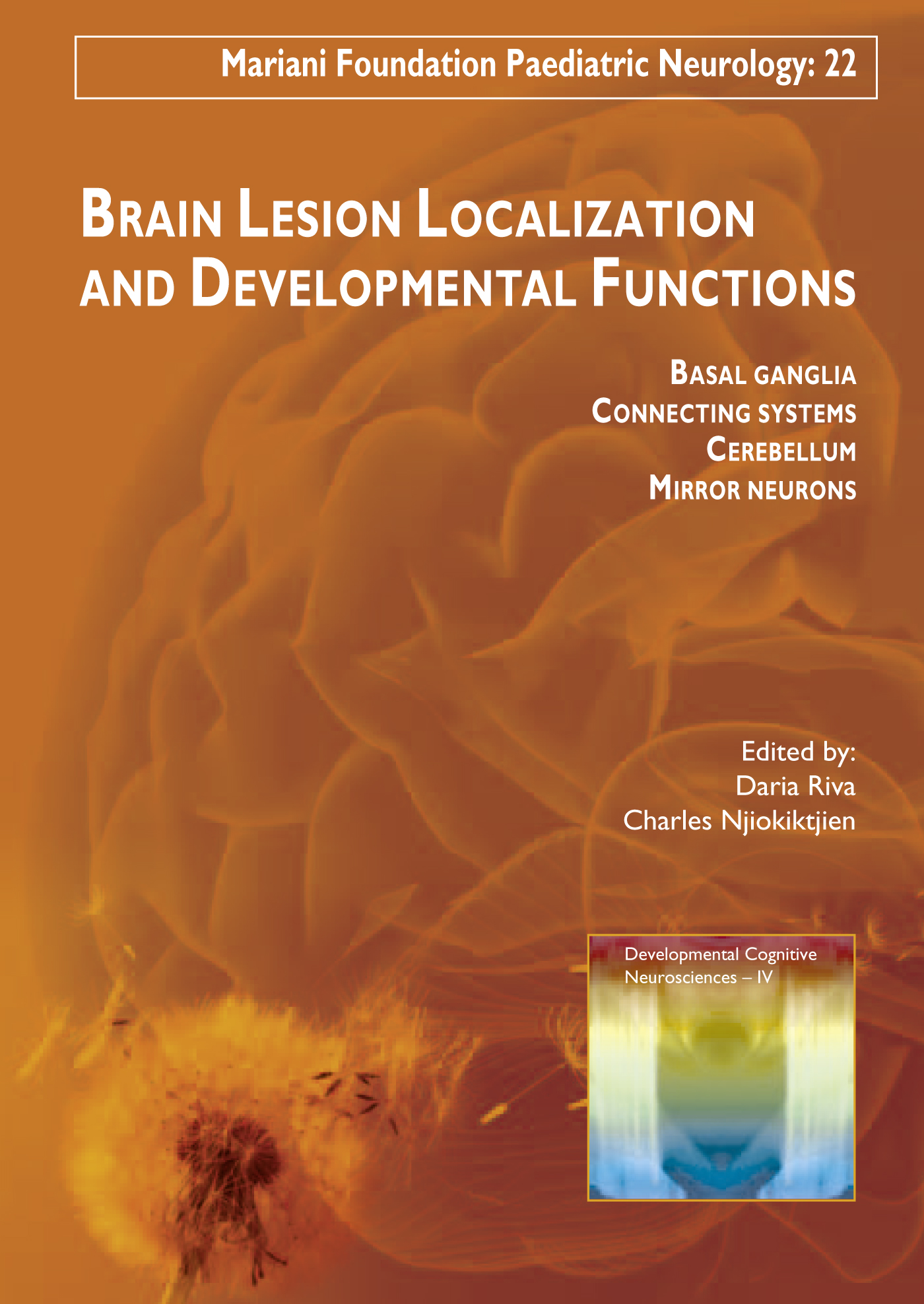(for every order > 35€)
Book written in english
VOLUME 22 Advances in the neurocognitive sciences, aided by increased imaging power, have extensively confirmed that during early development specific areas of a child’s brain are designed to process specific functions — neurologic, cognitive, linguistic, motoric, and visuospatial, among others — and that this processing involves globally complex interconnections with other areas distributed throughout the brain: a lesion in a given area interferes with the functioning and coherence of the system as a whole.
This volume discusses the consequences of early brain injury to many parts of the brain, including the basal ganglia, with their related disorders of aphasia, OCD, and AD/HD, as well
as white matter and its associated neuropsychological impairment
of intelligence, language, and visuoperception. The corpus callosum and cerebellum are studied as they relate to learning motor sequences
and language as well as communication disorders and social behavior.
This book also looks at mirror neurons as they affect the understanding of others’ intentions and the development of empathy and gestural and other forms of language.
The implications of these findings are examined since they have a critical effect on the rehabilitative and educational efforts that are being designed to mitigate the effects of early brain lesions on the growing child.
CONTENTS
Cognitive development after early brain lesions: implications for reorganization of function and distributed networks
Basal ganglia
Basal ganglia and thalamus : connections and functions
Aphasia in children
with basal ganglia lesions
Neuropsychiatric disorders of the basal ganglia: the neurobiology of Tourette syndrome, obsessive-compulsive disorder, and attention deficit hyperactivity disorder
Phenomenology of obsessive-compulsive disorder and clinical implications of its comorbidity with Tourette syndrome and attention deficit hyperactivity disorder
Connecting systems
Long-term cognitive and neuropsychological outcome of brain alterations in preterm infants
Prematurity: visuo-perceptual disorders
Multiple sclerosis in children and adolescents: neurocognitive disorders
Corpus callosum malformation
in developmental disorders
Cerebellum
The cerebellum as a multipurpose neural machine: basic principles and future perspectives
The role of the cerebellum in processing higher cognitive and social functions in congenital and acquired disease in developmental age
The role of cerebellar structures in communication and language disorders
Developmental dyspraxias: assessment and differential diagnosis
